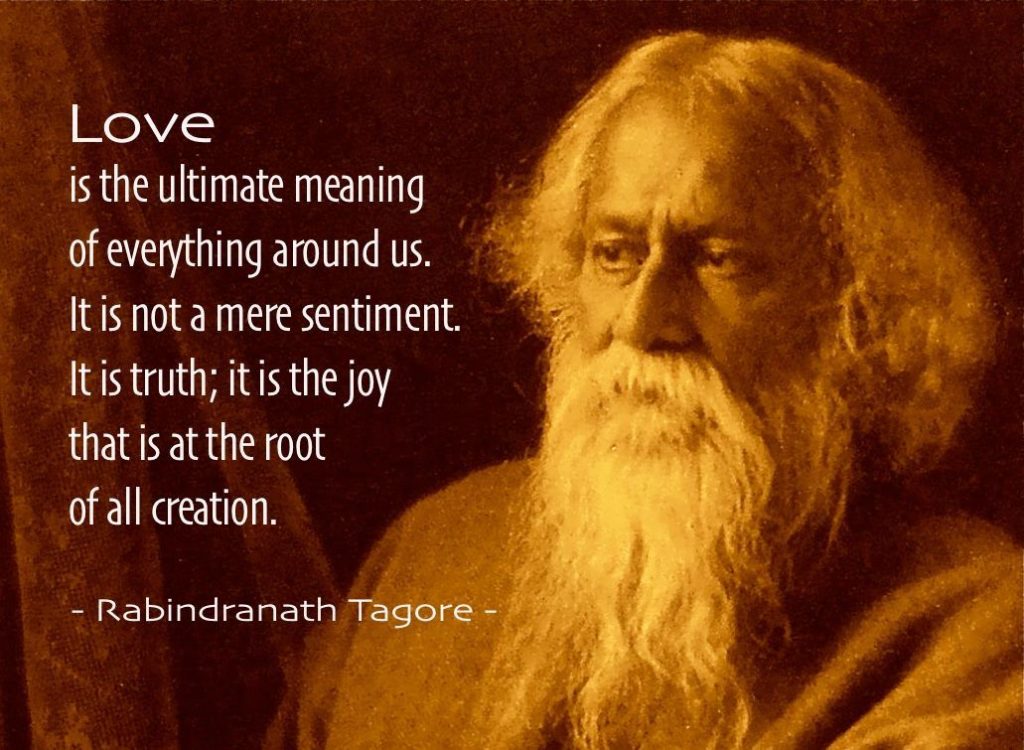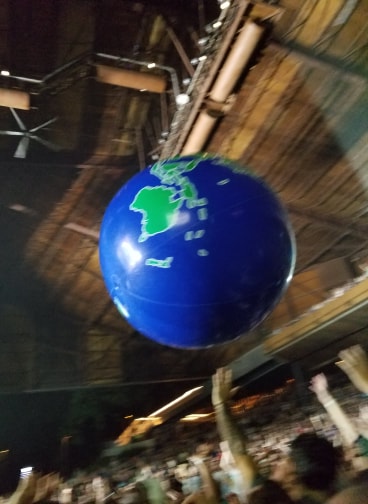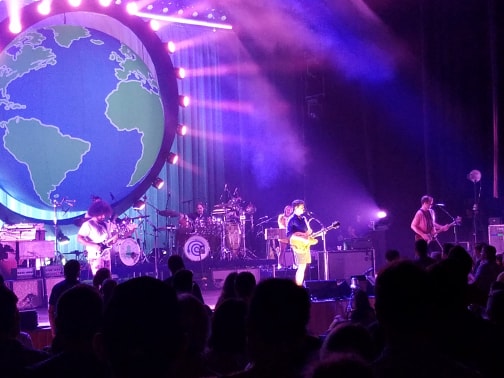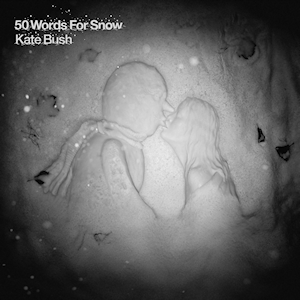Sufjan Stevens’ Songs of Gen X Neglect
One of my favorite indie singer/songwriters is Sufjan Stevens (b. 1975). He is a multi-instrumentalist who often plays multiple parts in his recordings, as well as vocals. His style ranges from acoustic folk to symphonic to electronic, often blended in one piece. It’s very unique and creative, and I love most of his albums and have listened to them over and over. His songs tend to be very downtempo, often sad and depressing (as another singer put it, sad songs say so much), but also lyrically brilliant, each song a miniature story rich with historical, cultural and spiritual references.
Stevens was born in Detroit, and grew up in Michigan, raised by his father and stepmother. His mother moved to Oregon and remarried when he was very young, though he still kept in touch and eventually ended up working with his stepfather. Now I don’t know him, and can’t speak for him, but I have noticed that he has written quite a few songs about growing up with divorce and about children feeling abandoned by their parents. It’s hard not to conclude that he has some resentments about his mother leaving, and has expressed those resentments through his music.
A childhood raised in neglect is a hallmark of the Generation X experience, which is why I gave this post its title. I wanted to showcase some of my favorite Sufjan Stevens songs which have this neglected childrearing theme.
The first song is “Romulus,” off of the 2003 album “Michigan,” presumably named after the Detroit suburb of Romulus, Michigan. In this song, children who are being raised by their grandfather are eager for the rare moments of interaction they have with their mother, who has moved away to Oregon. Notably, the narrator is ashamed of her. This song has a memorable line about kids being raised by being left alone to watch TV all night. A plaintive banjo melody runs through it.
Here are the full lyrics to “Romulus”:
Once when our mother called
She had a voice of last year’s cough
We passed around the phone
Sharing a word about Oregon
When my turn came, I was ashamed
When my turn came, I was ashamedOnce when we moved away
She came to Romulus for a day
Her Chevrolet broke down
We prayed it’d never be fixed or be found
We touched her hair, we touched her hair
We touched her hair, we touched her hairWhen she had her last child
Once when she had some boyfriends, some wild
She moved away, quite far
Our grandpa bought us a new VCR
We watched it all night, we grew up in spite of it
We watched it all night, we grew up in spite of itWe saw her once last fall
Our grandpa died in a hospital gown
She didn’t seem to care
She smoked in her room and colored her hairI was ashamed, I was ashamed of her
I was ashamed, I was ashamed of her
I was ashamed, I was ashamed of her
I was ashamed, I was ashamed of her
The next two songs are from the album “Avalanche,” which features outtakes from what is probably Stevens’ most famous work, “Illinois.” The first song has the unwieldy title “The Mistress Witch from McClure (or, the Mind That knows itself).” In it, a family’s children are exposed to their father’s affair with a woman who is apparently a convicted criminal (“the ankle brace she wore”). When one of them has a seizure and the others come to his aid, they are made painfully and shockingly aware that no one is looking out for them. Interwoven voices sing these haunting lyrics:
(Oh my God)
A mind that knows itself is a mind that knows much more
(No one came to our side)
So we run back, scrambling for cover
(To carry us away from danger)
The next song, “Pittsfield,” is less melancholy and more defiant. Alright, it’s still pretty melancholy, but also defiant. The lyrics invoke a story of children learning to take care of themselves while their parent works all the time. It’s not clear, though, if the parent has to work to make ends meet and so is actually sacrificing on behalf of the children. It’s not explicitly stated in the lyrics, but to me it sounds like the parent is probably a single mother. The child from whose perspective these lyrics are sung might not be aware of the constraints of keeping a house. Instead, they are aware of being put down (“Stand there, tell me that I’m of no use”). They are afraid of their parent, and becoming self-sufficient is how they respond, how they learn to free themself from this fear. To me, this strikes me as a particularly Gen X childhood experience, though it could conceivably happen to a child of any generation. Life is always hard for working class single moms, assuming that’s who the parent in this song is.
Here are the full lyrics to “Pittsfield”:
I’m not afraid of you now, I know
So I climbed down from the bunk beds this lowI can talk back to you now, I know
From a few things that I learned from this TV showYou can work late till midnight, we don’t care
We can fix our own meals, we can wash our own hairI go to school before sunrise, in the cold
And I pulled the alarm, and I kicked up the salad bowlsSince the time we meant to say much more
Unsaid things begin to take their toll
After school we shovel through the snow
Drive upstate in silence in the coldYou can remind me of it
That I was lazy and tired
You can work all your life as
I’m not afraid of you anymoreIf I loved you a long time, I don’t know
If I can’t recall the last time you told me soHere in this house in Pittsfield
The ghost of our grandmother works at the sewing machine post
Hiding the bills in the kitchen on the floor
And my sister lost her best friend in the Persian Gulf War
There was a flood in the bathroom last May
And you kicked at the pipes when it rattled oh the river it madeStand there, tell me that I’m of no use
Things unspoken break us if we share
There’s still time to wash the kitchen floor
On your knees, at the sink once more
You can remind me that I was tired
You can work late and give yourself up
Now that I’m older, wiser, and working less
I don’t regret having left the place a messYou can remind me that I was lazy and tired
You can recall your life as
I’m not afraid of you, anymore
Anymore
In 2012, Stevens’ mother died from cancer. In the next few years he worked on an album to help with grieving and to process his relationship with his mother. It was released in 2015, titled “Carrie and Lowell” after his mother and stepfather. It is quite possibly the most depressing album you will ever hear. Stevens combines melancholy songs about death with childhood reminiscences which speak to many of the same themes discussed previously. Did his mother really leave him at a video store? Maybe so based on these lyrics from the second song on the album.
When I was three, three maybe four
She left us at that video store
Oh, be my rest, be my fantasy
Oh, be my rest, be my fantasy
I’ve linked to the entire album below (on the artist’s official channel) and you can judge it for yourself. We can’t know exactly how Stevens was able to reconcile his feelings regarding his mother, but from his repertoire of sad songs about childhood neglect we must surmise that her abandonment of him left deep scars. I know many Gen Xers for whom something like this is the case.
If you’ve listened to the songs and perused the lyrics I posted here, I hope you appreciate Stevens as much as I do, and how wistfully and painfully his music portrays Generation X in childhood. We were tough, we were resilient, but the feeling of being left on our own haunts us to this day. Through his music – introspective, maudlin, often resentful – Sufjan Stevens perfectly captures this generational experience.




